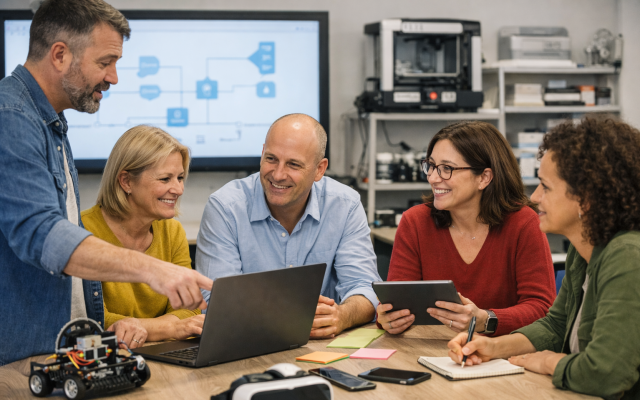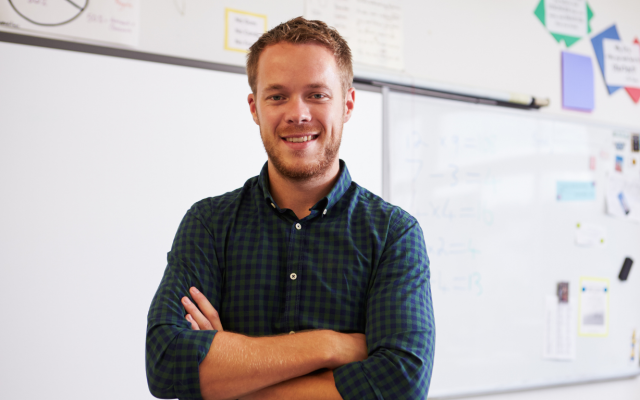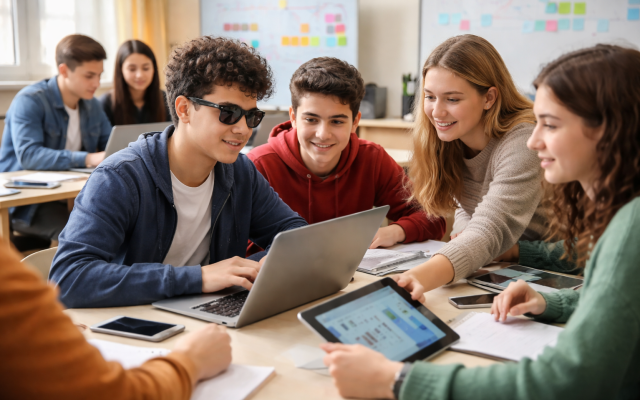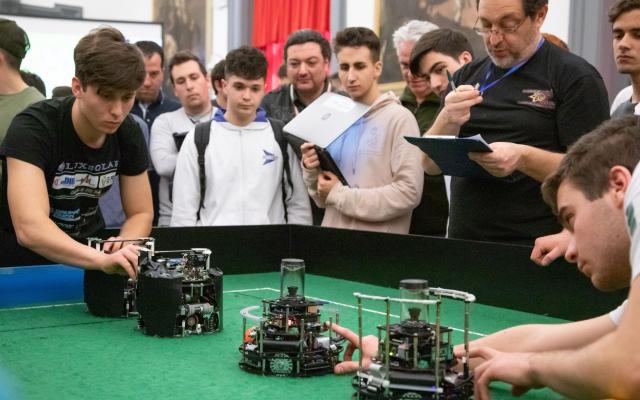From the robotics classroom of a Roman institute to the international stage in Brazil
There is a passion that is born between desks and laboratories, grows among electronic boards and nights spent programming, and reaches the world stage. This is the story of Team Ikaro, a young team from the Pacinotti-Archimede Institute in Rome, which after years of experimentation, national victories and endless hours of work has earned a place at the RoboCup Junior World Championships in Salvador, Brazil (15-21 July 2025). Here, amid fierce competition and new international collaborations, our young people have shown that creativity, teamwork and technology can truly change the way we learn.
Behind every great team there is always a leader capable of transmitting passion and method. In this case, the guide is Paolo Torda, teacher at the Pacinotti-Archimede Institute and “coach” of many young champions who, over the years, have taken the school to national and international podiums. In the report he sent us from Brazil, Torda describes the team's intense days, made up of development, optimisation, continuous testing and careful study of the opposing robots, always looking for new ideas for future projects. He recounts the hectic pace of the trip, which began every day at seven in the morning and often lasted until late in the evening, with hands on the robots and minds always on the go. His account reveals his pride in the results achieved and in the growth of the young people, who faced the global challenge with commitment and passion, aware that they had given their all [see also the news item Robotics, passion and the future].
Our team is called Ikaro, a name that has its roots in a historic project of the Pacinotti-Archimede Institute in Rome: I.C.A.RO., an acronym for Ideare, Costruire, Assemblare RObot (Design, Build, Assemble Robots). But it is not just a name: it is also a statement of intent. Ikaro represents the desire to challenge overly traditional, undynamic educational methods and demonstrate that you can learn while having fun, getting your hands dirty and putting your creativity to the test.
The goal? To have autonomous robots play a football match, following the rules of RoboCup Junior Soccer, an international competition that has been running for 25 years.
The team consists of three young men: Lorenzo Addario, Francesco D'Angelo and Andrea Perrina. Their journey began about three years ago. Year after year, the group has refined its skills, experimented with different robot models, overcome technical challenges and improved its strategy.
After two consecutive victories in the Italian championship and the RomeCup, we are now ready, after a lot of hard work and passion, to participate in the world championship in Salvador, Brazil. However, the protagonists are not (only) the young people, but their creations: Holly and Benji, two autonomous robots programmed to play football according to the international rules of the RoboCup Junior Soccer. Although they are identical in structure, each has developed its own “personality”: one specialises in the role of striker, the other is a goalkeeper.
The matches are played in two halves of 10 minutes each: the winner is the team that scores the most goals.
The tournament began on 17 July with a first group stage in which we played seven matches against teams from all over the world, 24 in total. Between unbeatable teams and others that were more accessible, the results were more than positive: four wins, one draw and two losses, which earned us fifth place in the individual rankings.
In the second part of the championship, the Superteams come into play, mixed teams composed of four teams from different countries, which join forces to take to the field with five robots. We were drawn together with two Brazilian teams and one Croatian team. We played three matches: one defeat and two victories. There was no official ranking, only the final for 1st and 2nd place, but based on the results, we should have finished in third or fourth place.
Throughout the trip, the guys never stopped: development, optimisation, testing, and even careful analysis of the opposing robots to get ideas for the next project. The days started at 7 a.m. and ended well after sunset. Always with their hands on the robots and their minds in motion.
After five days of hard work, the competition is over. We feel tired but happy. The boys know they did their best, and with a little luck we could have finished fourth. An adventure like this would not have been possible without those who believed in us from the beginning.
Thanks to our sponsors, whose support enabled us to take part in this world championship.
Thanks to our school for its constant support, enthusiasm and trust.
And thanks to all the people who, in one way or another, gave us that extra push to get this far.
For the team members, this is the beginning of a new adventure. They have graduated and we wish them all the best for the future, hoping they will continue their lives with the same enthusiasm they have shown here.
The Icaro project continues. It is a dream to be passed on to other young people, and the Ikaro team is ready to welcome new students.




